Hungary’s election race begins with rival rallies and growing political rift
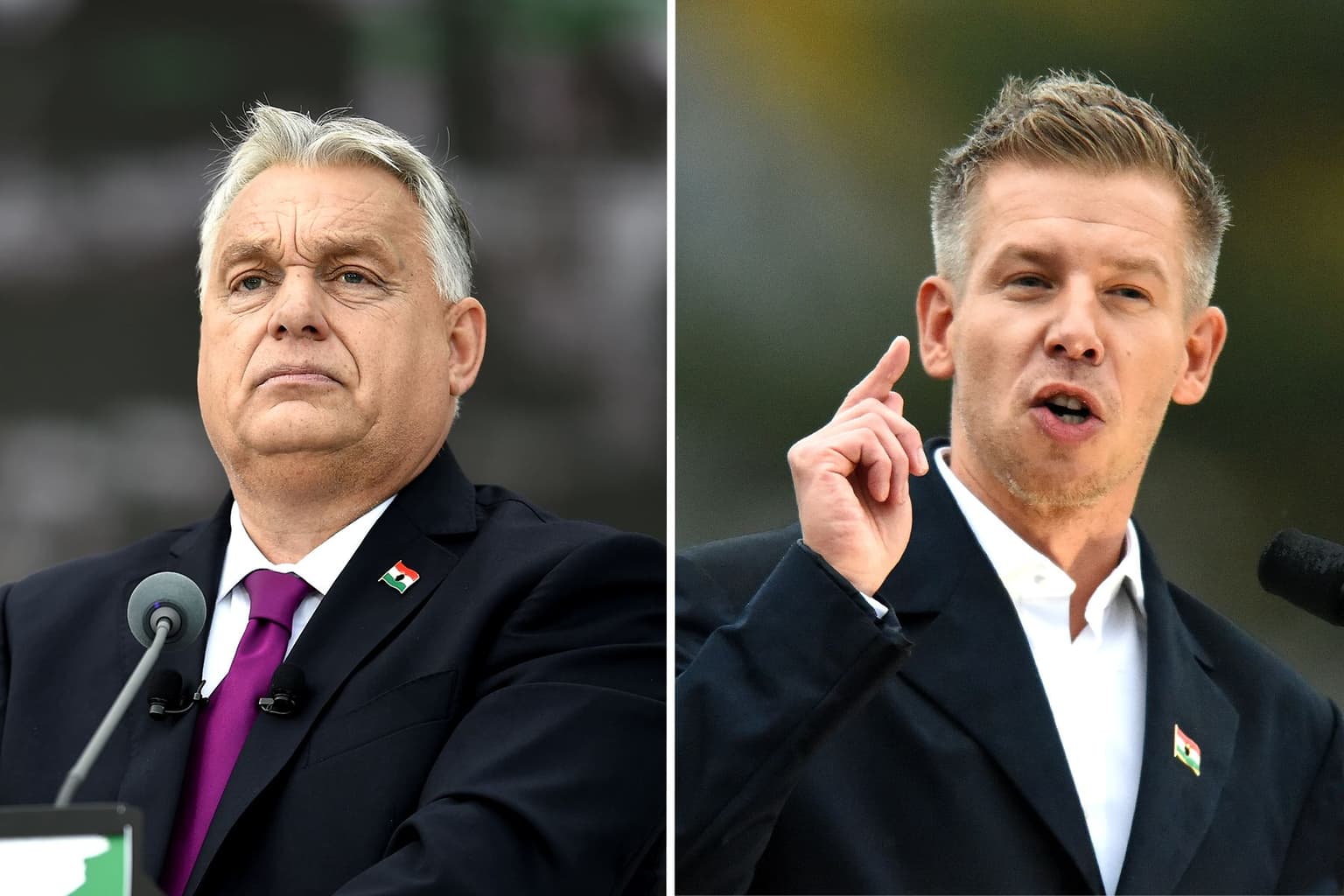
Collage of Viktor Orban (L), Hungarian prime minister, and Peter Magyar (R), leader of the TISZA Party, in Budapest, Hungary, on Oct. 23, 2025. (Balint Szentgallay / NurPhoto via Getty Images, collage: The Kyiv Independent)
Hungarian election season has begun on Oct. 23 with two large scale demonstrations hinting at potential confrontation and a growing political divide.
Viktor Orban, the country's longest-serving prime minister, sees his 15-year-long rule challenged by an upstart — Peter Magyar. And the rallies that took place in Budapest on a national holiday commemorating Hungary's 1956 anti-Soviet uprising shed some light on the divide between the two camps.
"We don't want to die for Ukraine," read a banner carried by supporters of Orban, who has cast his Fidesz party as a "force of peace" — in contrast to EU "warmongers" sending arms to Ukraine.
"Hungary has sided with peace. The Russian-Ukrainian war is not our war," Orban told the crowd.
In turn, those who joined Magyar's rally chanted "Russians go home!" drawing on the legacy of the 1956 rebellion crushed by Soviet tanks.
Magyar blasted the prime minister as a man who went from an anti-Soviet activist in his youth to "the Kremlin's most loyal ally."
As Orban consistently breaks EU consensus by blocking aid to Ukraine and maintaining warm ties with Moscow, Ukraine and Europe anxiously await the outcome of the April 2026 parliamentary elections.
"(Orban's) victory would have severe consequences," a top EU diplomat told the Kyiv Independent following the rallies.
So what do the two camps stand for?
Hungary's illiberal strongman
Orban, 62, has ruled the country since the Fidesz party won the 2010 parliamentary election. The party won the three consecutive elections that followed in a landslide.
Giving rise to what he called an "illiberal democracy," Orban has espoused traditional and nationalist values while railing against immigration, LGBTQ+ rights, and the EU.
The Hungarian leader has been accused of undermining the rule of law and fostering systemic corruption, sparking frequent clashes with Brussels and prompting the EU to freeze around $20 billion in funding.
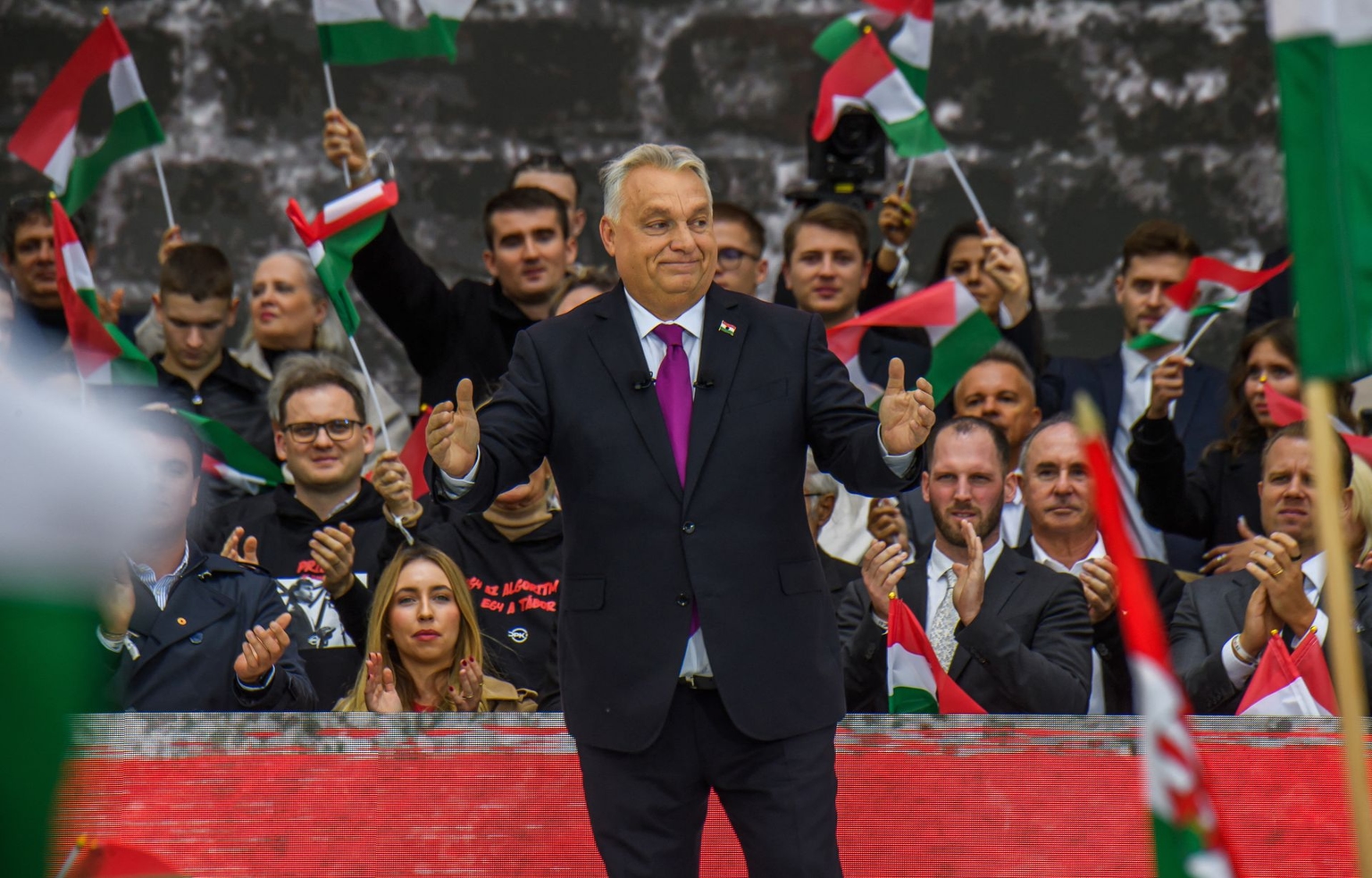
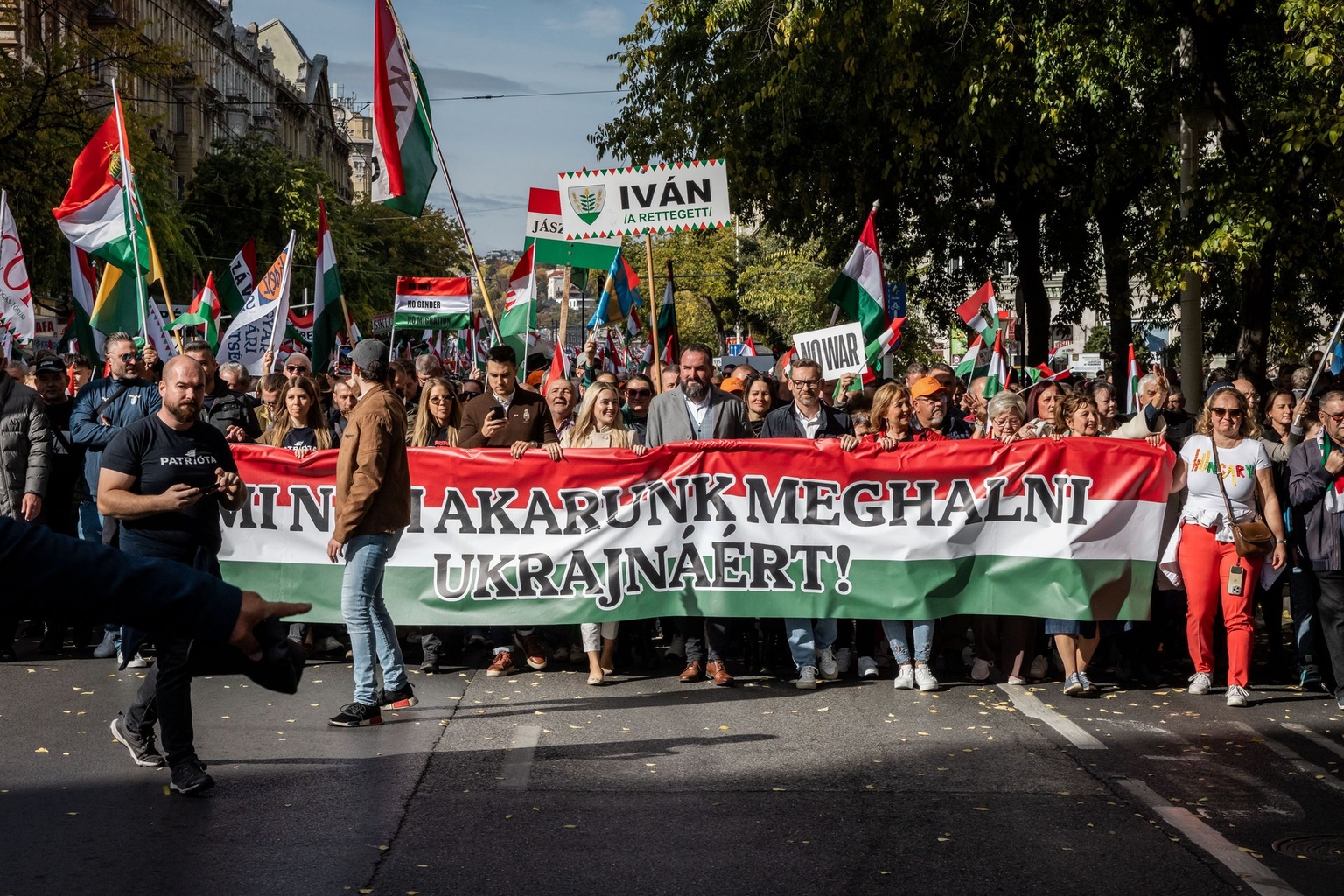
Since 2022, Orban has come into the international spotlight due to his staunch opposition to EU support for Ukraine, as well as his blocking of Kyiv's accession efforts.
Orban had hoped that U.S. President Donald Trump would bring a shift in Western policy, making it more Russian-friendly. But Trump's strategy centers on pushing Europe to cut off Russian energy imports, a step Budapest rejects.
The vast majority of the oil bought by Hungary comes from Russia via the Druzhba pipeline. The country is also reliant on Russian gas, and the Rosatom company is leading the expansion of the Paks II, the second part of the sole nuclear power plant in the country.
Orban has been one of the few EU leaders to meet Russian President Vladimir Putin during the full-scale war, drawing rebuke from his European partners.
From Fidesz insider to rival
Magyar, 44, was once a little-known Fidesz lawyer married to — until 2023 — Judit Varga, a former justice minister and Orban's ally.
He rose to fame in February 2024 after leaving the party and actively criticizing the president's pardoning of a man convicted of helping to cover up child sexual abuse, an event that sparked a major political scandal.
Magyar then turned into an anti-Fidesz activist, lambasting Orban's party on social media for endemic corruption and cronyism. After joining a little-known Tisza Party, he quickly became its leader and emerged as the main challenger to Fidesz.
Center-right Tisza won nearly 30% in the European Parliament elections last year, and most polls now show it neck and neck with Fidesz.
Magyar has described his political views as "critically" pro-European liberal-conservative, distancing himself from both Orban and the traditional left-wing opposition.
Seeking to stem his rise, Fidesz has cast Magyar both as a puppet of the EU and an ally of Ukraine. Orban has even claimed Kyiv is openly backing the opposition as the two countries traded espionage accusations earlier this year.
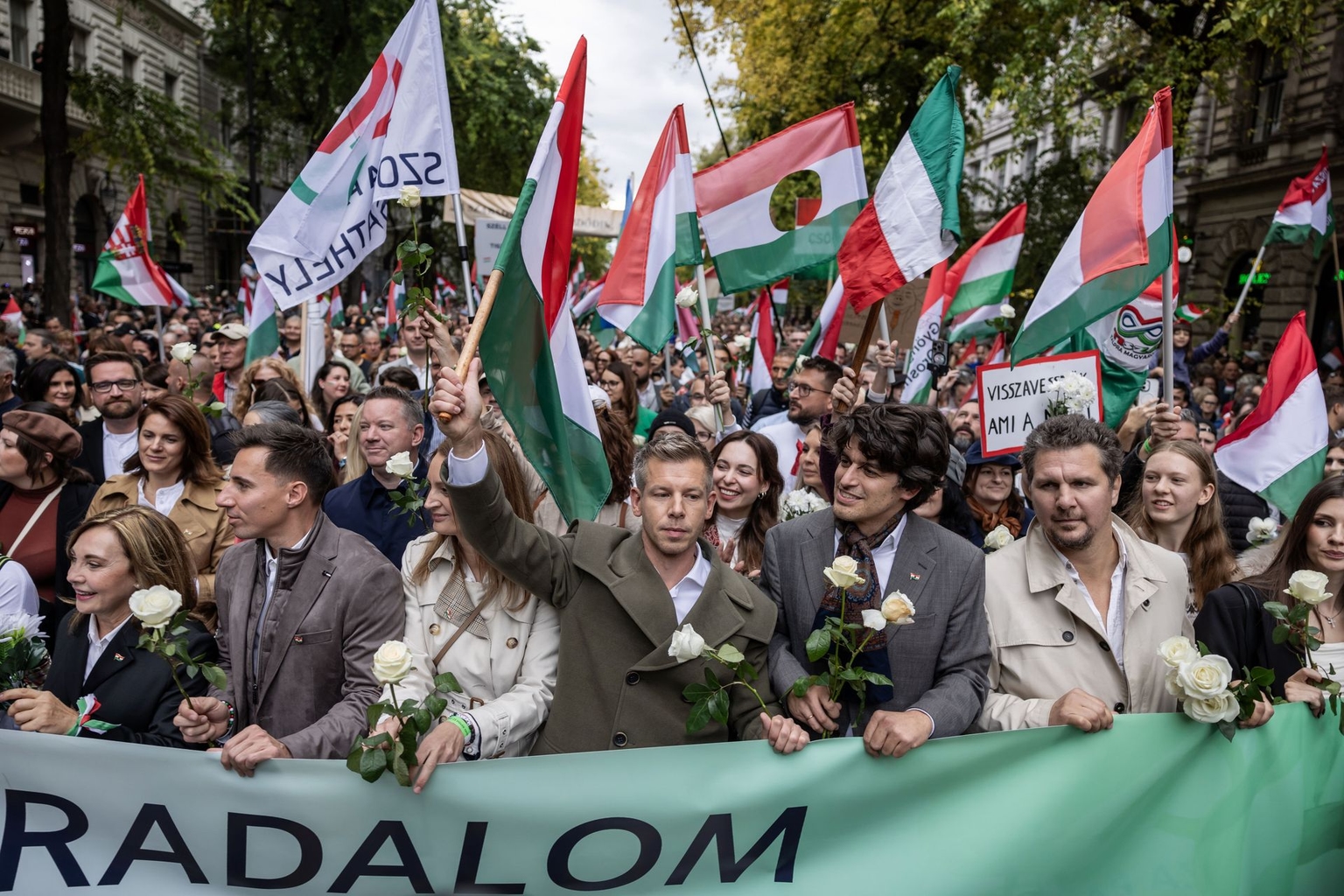
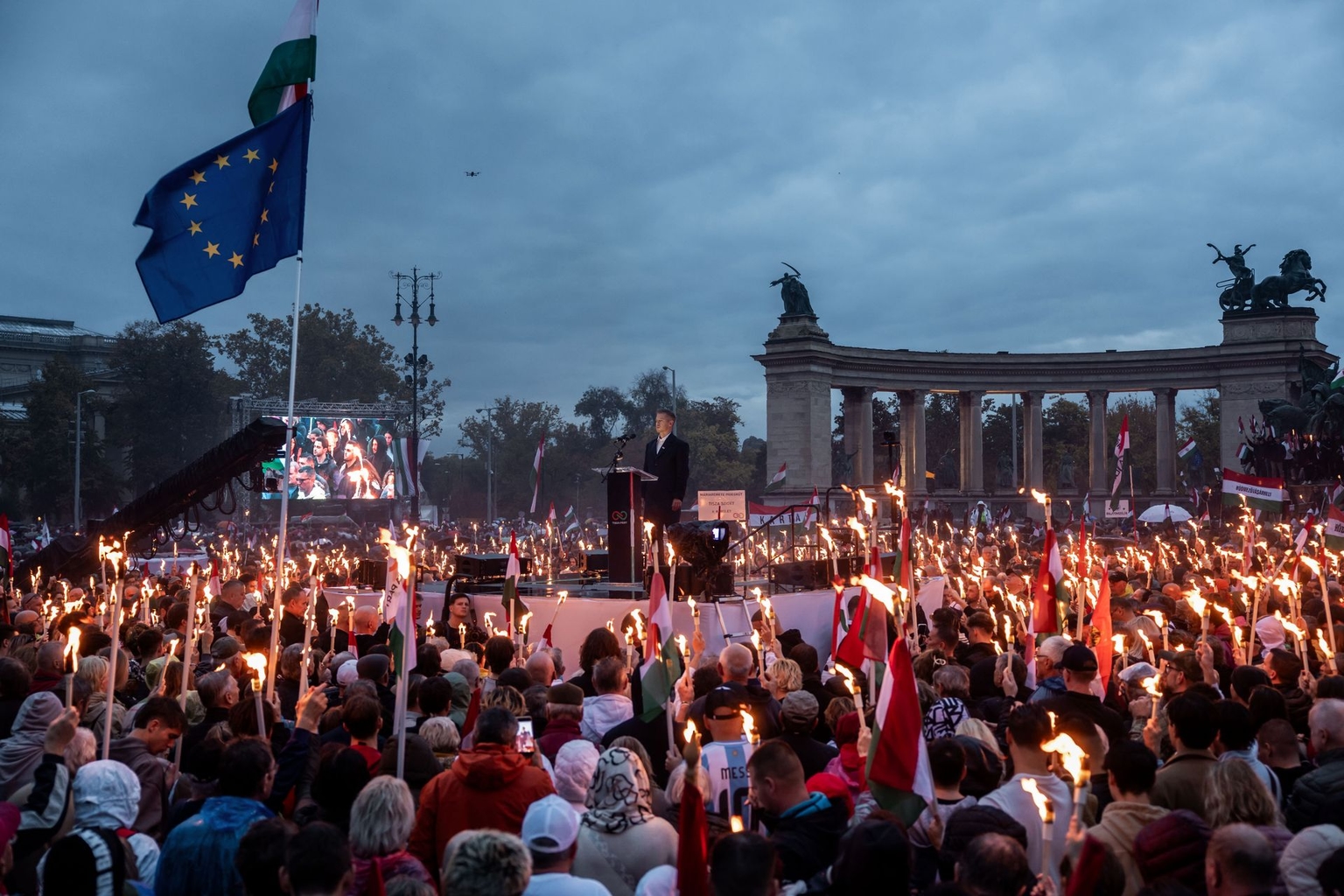
Although cautious on the topic of Ukraine, Magyar personally brought humanitarian aid to Kyiv last year and mocked Orban's "propaganda" opinion survey on Ukraine's EU accession.
The opposition leader accused Moscow of seeking to meddle in the upcoming elections, claiming it deploys "disinformation campaigns, cyber operations, or intimidation" to sway the voters.
At the same time, Magyar said he would aim for "pragmatic relations" with Russia and ruled out an accelerated shift away from Russian energy imports if elected.
Given Fidesz's years-long dominance, observers warn that the election is unlikely to be a fair one. Orban has access to vast state resources and a powerful media empire, unlike the Tisza Party newcomers.
But Orban's political bloc has been weighed down by corruption scandals and a slowing economy, potentially giving Magyar a much-needed edge.
Note from the author:
Hi, this is Martin Fornusek.
I hope you enjoyed this article. In our team, we believe fact-based and truthful reporting should be available to all – that's why we don't use any paywall.
If you'd like to help us provide you with more in-depth coverage of Ukraine's struggle against Russian aggression, European politics, and other topics, please consider joining the Kyiv Independent community.









